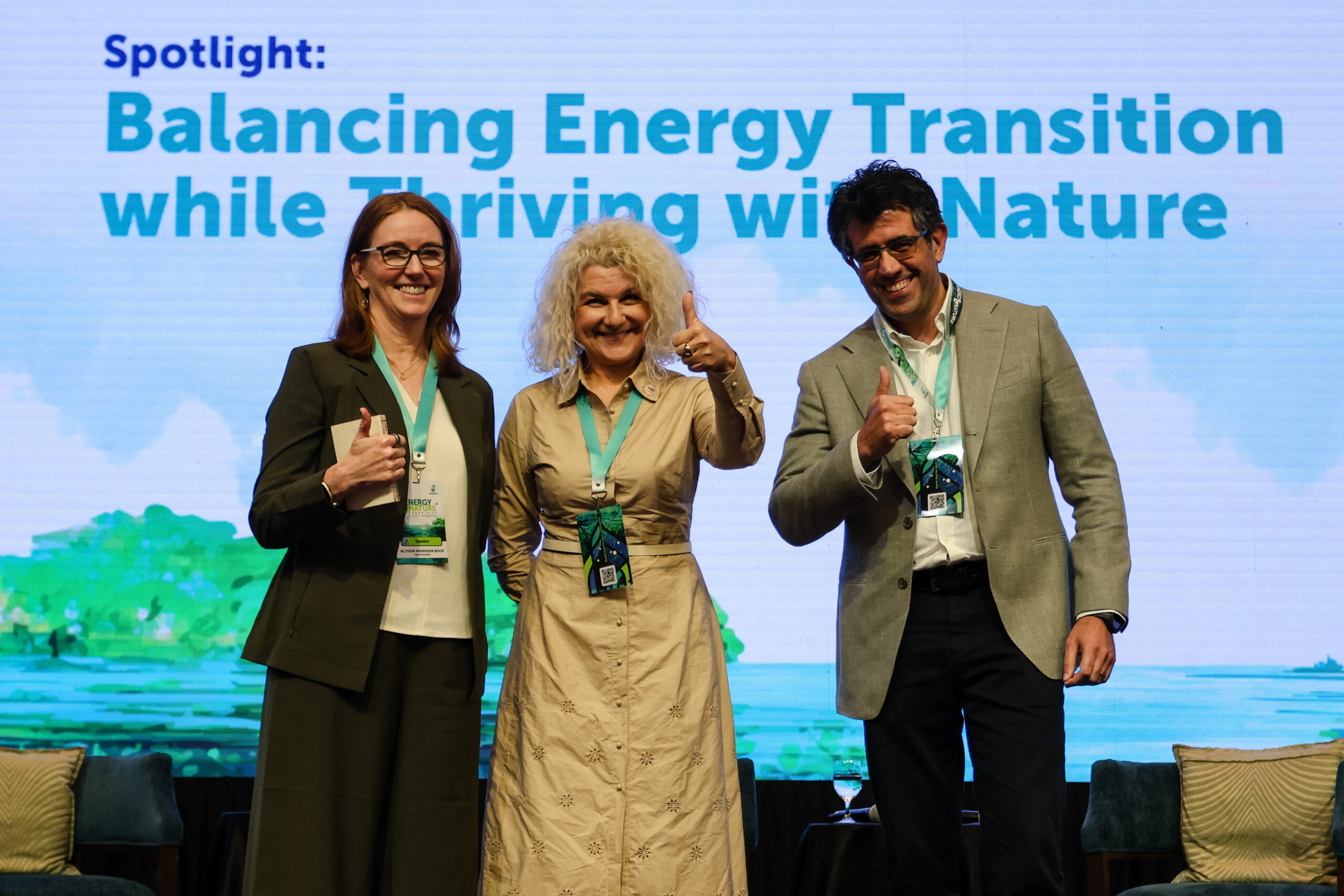
Karim was invited to speak in Kuala Lumpur at the Energy and Nature Forum – the first global event of its kind to bring together two communities that rarely share the same stage: the energy sector and nature conservation.
Karim spoke on a panel titled “Balancing the Energy Transition While Thriving with Nature” – moderated thoughtfully by Allyson Anderson Book, CSO at Baker Hughes, with great contributions from Patricia Claverie, VP Environment at Total Energies.
💡 Here are some key insights from our discussion:
- The energy transition is solving many climate-related challenges – but it also introduces new threats to nature and biodiversity that must be integrated into planning and decision-making
- Renewable energy projects have direct impacts on land, oceans, habitats, and ecosystems – and also indirect impacts throughout their supply chains and life cycles
- These indirect impacts are often overlooked – from the mining of critical minerals (including deep-sea mining) to the end-of-life of renewable installations
- Energy companies have a crucial role in shaping a nature-positive transition. Biodiversity must be considered beyond offsets, embedded into project design, supply chains, and corporate strategy
- Global frameworks like the Kunming-Montreal Global Biodiversity Framework (GBF) , the Taskforce on Nature-related Financial Disclosures (TNFD), and IUCN guidance should be applied consistently across jurisdictions – even where local regulations fall short
- Leaders in the energy sector are those who go beyond compliance: adopting global standards, ensuring transparency across suppliers, and striving for biodiversity net gains
- The valuation of ecosystem services, including non-use and cultural services, helps stakeholders make more informed decisions. This applies to both energy projects and the mining sector that powers them
- To truly mainstream biodiversity, we need a shared language and a shared mindset – one that puts nature at the center of all decisions, not as an afterthought
- 🌿 The bottom line: Nature must be integrated across strategy, operations, and culture — not treated in silos. This is the only way for the energy transition to be truly sustainable
Grateful to the organizers – Charlotte Wolff-Bye, Giulia Sartori, AL FALAH ALHAS ABDUL LATIF, and the Petronas sustainability team – for making this important conversation happen.
To be continued at the IUCN World Conservation Congress in Abu Dhabi this coming October.




